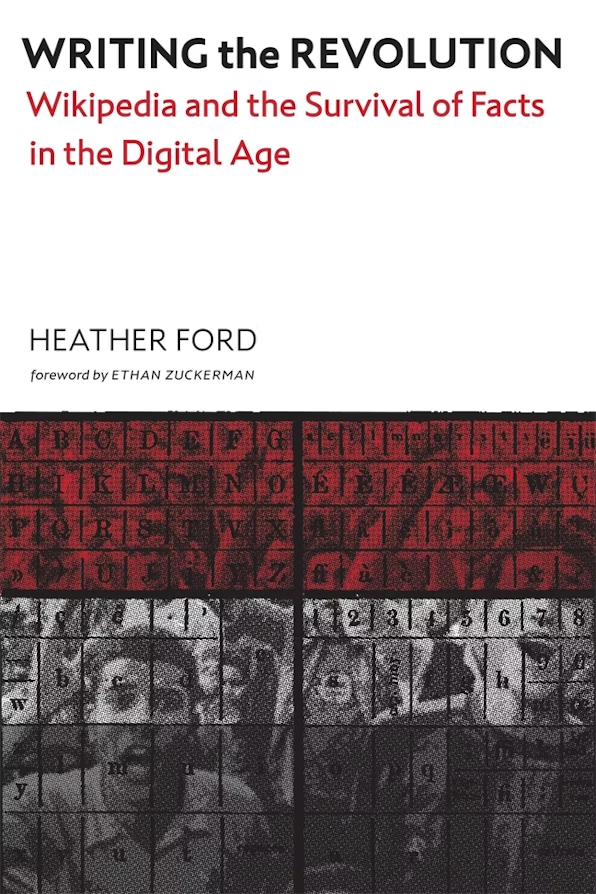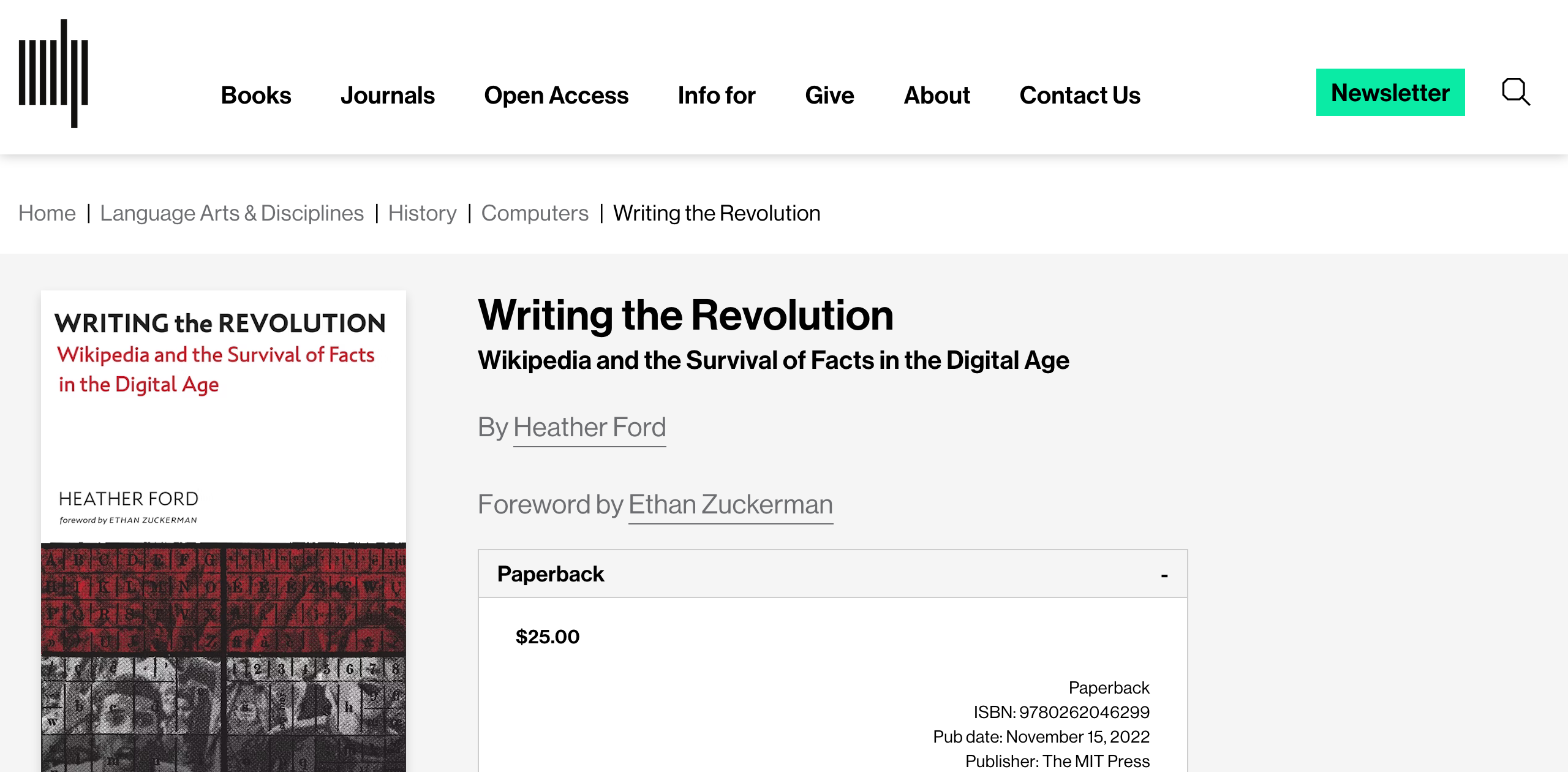I had been encouraged after a conference session to read Heather Ford’s (2022) Writing the Revolution, and can understand after having done so why this book was recommended.

Ford in it offers her decade-long digital ethnography of the 2011 Egyptian Revolution Wikipedia entry from its emergence and through its evolution and uses it to challenge conventional ideas about facts in the digital world. To do so, she outlines a framework for facts that includes allies, or those who author or edit Wikipedia content, and companions, or sources that validate and verify these assertions.
Ford uses these results to challenge conventional Wikipedia principles, such as neutral point of view, verifiability of facts, and prohibitions against primary research. Instead, she argues that facts are contested and change, and as such illustrate the reality that knowledge is not objective but rather situated, especially in a digital world.
This account systematically examines her observations and consistently supports her claims. Moreover, it establishes context through interviews with central participants, including those who led early efforts to establish this page, and in so doing shaped the narrative around this event, such as whether, and when, to call it a revolution.
I wanted more synthesis, implications, and even application, especially beyond the Wikipedia world, but I admit that at least the latter wasn’t the ostensible purpose of this book, which is a successful account of academic research. As such, it illustrates a way of bridging the academic and the public, and offers a way of thinking about more relevant research.
And I found it to be useful in ways I didn’t expect. For me, its engaging style consistently demonstrated a grad school tenet — knowledge as situated — that seemed intuitively true, and yet to have wide-ranging implications, especially for institutionalized practices, which I could never confront.
I think Ford’s account clearly illustrates an interim step in an effort to transform a grad school stipulation into a useful foundational principle.

Leave a Reply